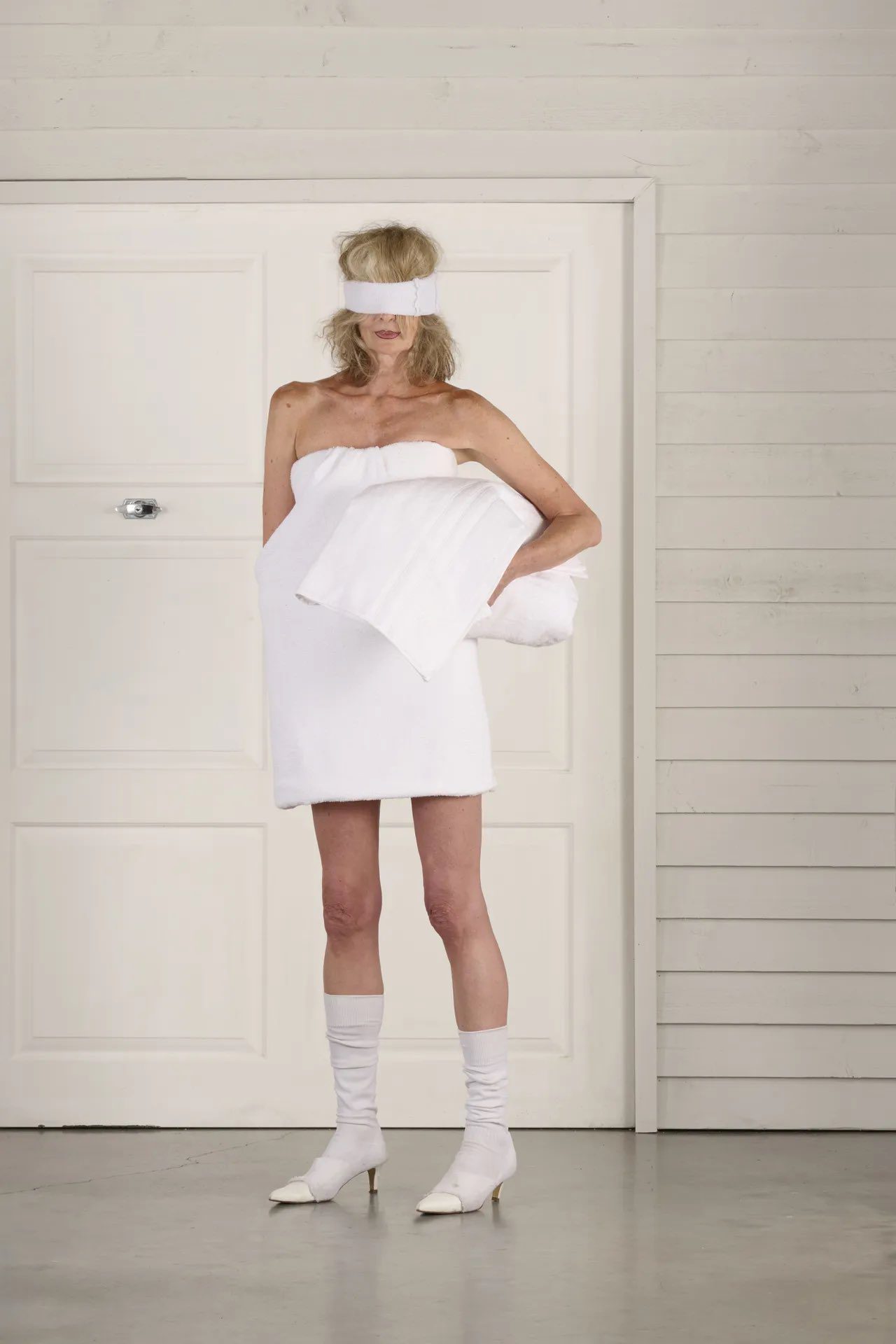
The Last Resort: Natasha Zinko 2026 Collection
Natasha Zinko presents her Resort ‘26 tells s storyline-series of looks— portraying an all American vacation of a car salesman, a mechanic, a delinquent, a muscle man, a cigarette mom and her daughter.
But this is no nostalgic Americana. It’s satire and sharp in a sense of theatrical decay. The London-based Ukrainian designer peels back the glossy surface of American iconography to reveal a dream turned absurd. “The Last Resort” captures what happens when ideals rot under the weight of consumerism, excess, and dysfunction. The silhouettes are loud, exaggerated, cartoonish: boxy pinstripe suits with asymmetrical or upside-down tailoring. Textures of denim, towel terry cloth, swimsuit nylon, and sweatshirt heathers are all styled and blended for a storyline of a summer-droughted vacation. Slouchy socks and patched band-aids add to smaller details. The surrealistic styling of Zinko’s contemporary pieces conforms to a mild color palette. Ordinary garments like swimwear and sweatsuits are modified into the storytelling aspect of it all.
Each look is a character trapped in the myth of the American dream, caught in a dysfunctional fantasy that feels familiar. The “muscle man” wears a tank top with exaggerated shoulder padding, flexing capitalism’s empty promises. The “cigarette mom” is disheveled and concealed in her towel. The teenage daughter wears Juicy-esque lowrise denim and kitten heels. Silhouettes that are sultry and leisurely low exposes the model’s build.
Zinko uses fashion as satire, exposing the absurdity of archetypes we’ve normalized—aspiration warped by delusion, leisure turned grotesque. The setting of the show—half diner, half gas station graveyard—evokes a purgatory of Americana, somewhere between the freedom of the open road to the middle of nowhere. “The Last Resort” isn’t just a destination—it’s a diagnosis. It holds a mirror to the fraying fantasy of American culture and dresses it up in radical modernity and resignation. Zinko’s resort isn’t about escape. It’s about confrontation, and finding beauty in the breakdown.


